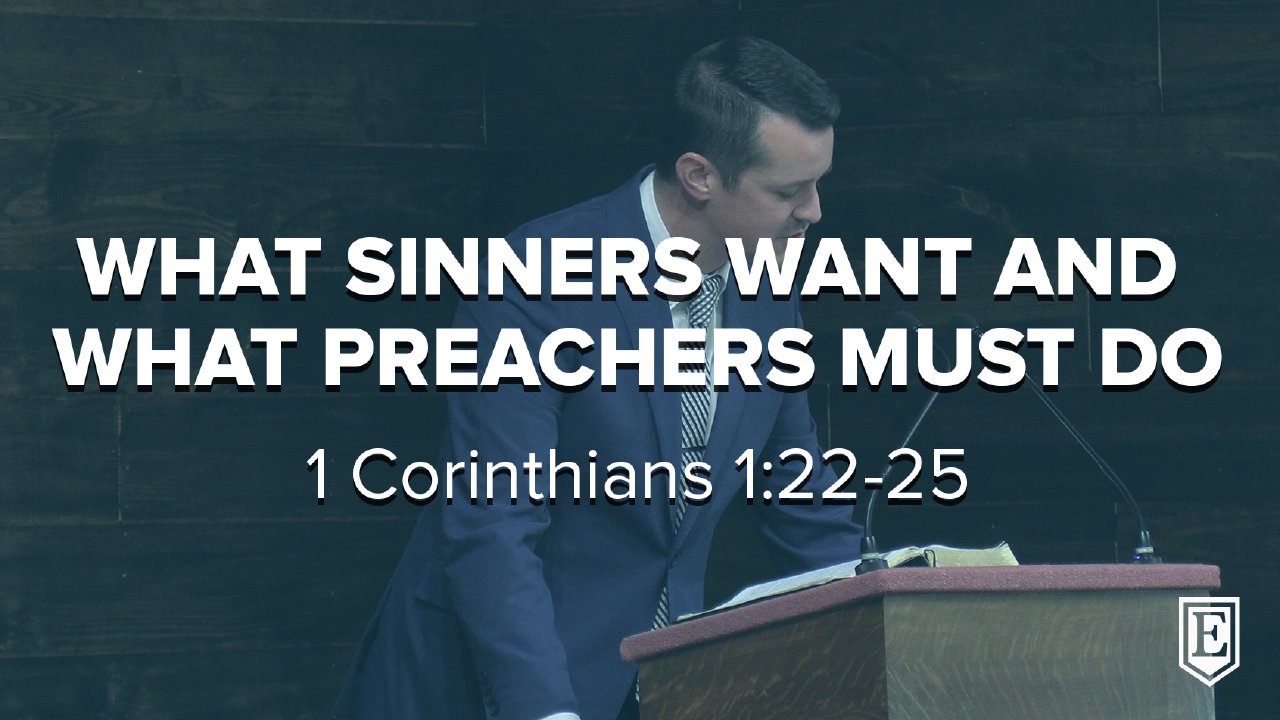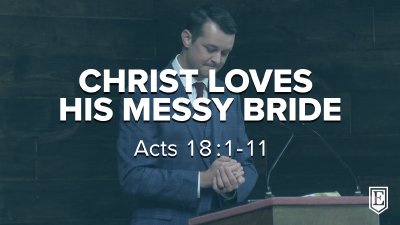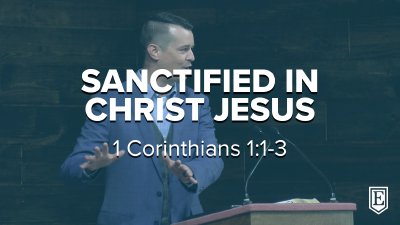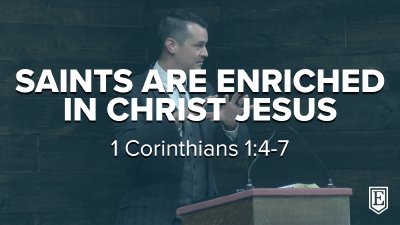OUTLINE
I. SINNERS WANT EITHER A SHOW OR SOMETHING NEW (v. 22)
II. FAITHFUL PREACHERS PREACH CHRIST CRUCIFIED (v. 23a)
III. FAITHFUL PREACHERS PREACH CHRIST CRUCIFIED BECAUSE IT GIVES PEOPLE WHAT THEY TRULY NEED (vv. 23b-24)
I) Faithful preachers preach Christ crucified because this is how God gives sinners the gifts of repentance and faith.
II) Faithful preachers preach Christ crucified because this is how God reminds His people that the sins they still battle are truly forgiven for Christ’s sake.
III) Faithful preachers preach Christ crucified because this is how God continually works a hatred for sin and desire for holiness in believers.
IV) Faithful preachers preach Christ crucified because this is how God assures His saints of His big-hearted love for them!
V) Faithful preachers preach Christ crucified because in this message God strengthens believers in the fact that He has paid far too high a price for them to ever kick them out of His family.
VI) Faithful preachers preach Christ crucified because this is how God comforts His people by reminding them that just as He forgave them by Christ’s death, He will also raise them to eternal life in glory though His resurrection.
IV. FAITHFUL SAINTS NOW SEE CHRIST CRUCIFIED AS THE WISDOM OF GOD AND THE POWER OF GOD (v. 24b-25)
EXHORTATION (sinners)
You who still reject Christ: you need something to happen to you that you cannot control. Cry out to God and ask Him to call you to Himself. Then trust in Christ crucified and you will be saved.
EXHORTATION (saints)
You who are “the called”—who embrace Christ crucified through faith,
I) Worship God as you consider His wisdom and power in saving you.
II) Fill your thoughts with Christ Jesus and Him crucified and you will be assured of His tender love and affection for you.
III) Thank the Holy Spirit who caused even you to be born again to a living hope.
IV) Depend on the same Spirit that brought you to life to strengthen your life to serve and obey the Lord.
V) Make it your aim in all of your life to say with Paul, “We preach Christ crucified."
QUESTIONS FOR STUDY AND DISCUSSION
1. What do Jews demand according to verse 22? How does Matthew 16:1-4 help clarify what Paul means here? How does Jesus rebuke those who demand signs? What do Greeks demand according to verse 22? How does Acts 17:21 help clarify what Paul was getting at?
2. Read verse 23. Rather than giving signs to the Jews or worldly wisdom to the Greeks, what do Paul and other faithful ministers of Christ do? How should this direct the way you engage in evangelism and apologetics? Why do you think the preaching of “Christ crucified” was a stumbling block to the Jew? Why do you think the preaching of “Christ crucified” was folly to Gentiles?
3. According to verse 24, how does the preaching of “Christ crucified” become the power of God and the wisdom of God to those who once stumbled over it and called it folly? What does Paul mean by “called”? What is God saying about the way He saves sinners? How does 2 Corinthians 4:4-6 help clarify?
4. What is Paul getting at in verse 25?

WHAT SINNERS WANT AND WHAT PREACHERS MUST DO: 1 Corinthians 1:22-25
1 Corinthians 1:22-25
August 29, 2021 • Brett Baggett • 1 Corinthians 1:22–25
More from
1 Corinthians







